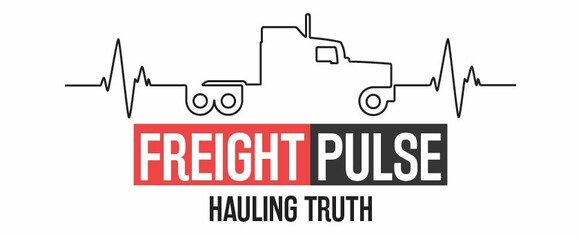In a decisive move to tighten road safety and regulatory enforcement, U.S. Transportation Secretary Sean Duffy announced that commercial truck drivers lacking English language proficiency will be removed from service, and the Department of Transportation (DOT) will intensify its oversight of both domestic and international Commercial Driver’s License (CDL) verification processes.
Speaking in Austin, Texas, on May 20, Duffy addressed what he called a regulatory breakdown in the trucking sector. “From not enforcing English-language proficiency to broker fraud to non domicile CDLs, it kind of feels like the trucking industry has become the Wild West,” he said. “We’re going to end the play of bad actors. We are going to support, encourage and prop up the great businesses, great drivers, and great brokers that keep America running.”
Reinstating English Proficiency Enforcement
Duffy signed an order officially rescinding a 2016 memo issued during the Obama administration that discouraged enforcement of an existing federal requirement: all commercial drivers must be able to read and speak English sufficiently to converse with the public, understand traffic signs, respond to official inquiries, and complete required reports and records.
“We are issuing new guidance that ensures a driver who cannot understand English will not drive a commercial vehicle in this country period, full stop,” Duffy said. “This is not just about regulation. It’s about preventing tragedies and saving lives.”
He highlighted a stark drop in enforcement since the 2016 memo. In 2015, more than 99,000 English-language violations were recorded nationwide, with 1,000 drivers placed out of service. By 2024, that number dropped to just 10,000 violations, with no drivers taken off the road despite federal regulations remaining unchanged.
Safety and Public Risk
Federal regulations under 49 CFR § 391.11(b)(2) require that drivers operating commercial motor vehicles in interstate commerce must “read and speak the English language sufficiently to converse with the general public, to understand highway traffic signs and signals, to respond to official inquiries, and to make entries on reports and records.”
“These aren’t optional rules,” Duffy stressed. “Allowing someone to operate an 80,000-pound vehicle who can’t read a stop sign or understand a police officer’s command is a direct threat to public safety. We’ve seen the consequences devastating crashes that have ended lives.”
He added that beginning June 25, English language violations will again qualify as “out-of-service” violations under national enforcement criteria, as supported by the Commercial Vehicle Safety Alliance (CVSA).
Strengthening CDL Verification – Foreign and Domestic

Beyond language enforcement, Duffy unveiled broader reforms tied to President Donald Trump’s April 28 executive order titled “Enforcing Common Sense Rules of the Road for American Truckers.”
The DOT will begin reviewing the issuance and verification process of non-domiciled CDL’s licenses granted to foreign nationals allowed to operate in the U.S. as well as ensuring state-level compliance with proper documentation and credentialing.
“We are going to improve verification protocols for both domestic and international CDLs to ensure only properly vetted, qualified drivers are on our roads,” Duffy said.
Non-domiciled CDL concerns have grown in recent years as more foreign drivers have entered the U.S. trucking workforce, often through temporary visa programs. Critics have warned that some states lack robust systems for verifying the authenticity of international driving credentials or conducting appropriate background checks.
Support for American Truckers
Duffy also addressed long-standing concerns in the industry, particularly the shortage of safe parking for long-haul truckers—an issue raised consistently by drivers and industry groups alike. While he did not announce specific actions, Duffy promised that the DOT will prioritize trucker well-being and work conditions as part of its policy reviews.
John Esparza, CEO of the Texas Trucking Association, praised the renewed focus on English-language enforcement and echoed Duffy’s emphasis on safety. “The very basic premise of what is occurring today is safety,” Esparza said. He also expressed support for further scrutiny of non-domiciled CDL holders and called for clearer regulations surrounding cabotage the transport of goods between two points within the U.S. by a foreign carrier, which is generally prohibited under U.S. law but often inadequately enforced.
Duffy framed the policy shift as part of a broader effort to restore order and integrity to the trucking industry. “This is an industry with grit,” he said. “You now have a USDOT that shares that grit. We’re going to work together and fight together to make sure our roads are safe, our laws are enforced, and the bad actors are driven out of the business.”
The enforcement actions and policy changes announced by Secretary Sean Duffy will significantly affect non-domestic (foreign) commercial drivers operating in the United States. Here’s a breakdown of the likely impacts:
- Stricter English Language Requirements – Non-domestic drivers, even if previously allowed to work despite language barriers, will now need to demonstrate English fluency in both written and spoken forms or risk losing the ability to drive commercially in the U.S.
- Tighter Verification of Non-Domiciled CDLs – Foreign drivers may face delays or denials when applying for a CDL if their documentation is incomplete, unverifiable, or does not meet new federal standards. States may also be held to tighter compliance standards by the DOT.
- Increased Risk of Disqualification – More foreign drivers could lose their ability to legally operate in the U.S., especially if they are employed by companies not adhering to tighter verification processes.
- Industry and Immigration Ramifications – Companies may need to invest more heavily in training non-domestic drivers in English or shift recruiting toward domestic drivers to avoid regulatory risk.
- Political and Trade Implications – While not targeting any specific country, the enforcement shift will disproportionately impact non-English-speaking foreign drivers, particularly from Latin America or Eastern Europe.

